Utah was abuzz when Brigham Young University – often called The Lord’s University for The Church of Jesus Christ of Latter-day Saints – announced on Feb. 19 that the clause prohibiting “all forms of physical intimacy that give expression to homosexual feelings” would be removed from the school’s honor code.
Two weeks later, BYU students were dismayed to learn, as an official LDS church statement indicated, “Same-sex romantic behavior cannot lead to eternal marriage, and is therefore not compatible with the principles of the Honor Code.”
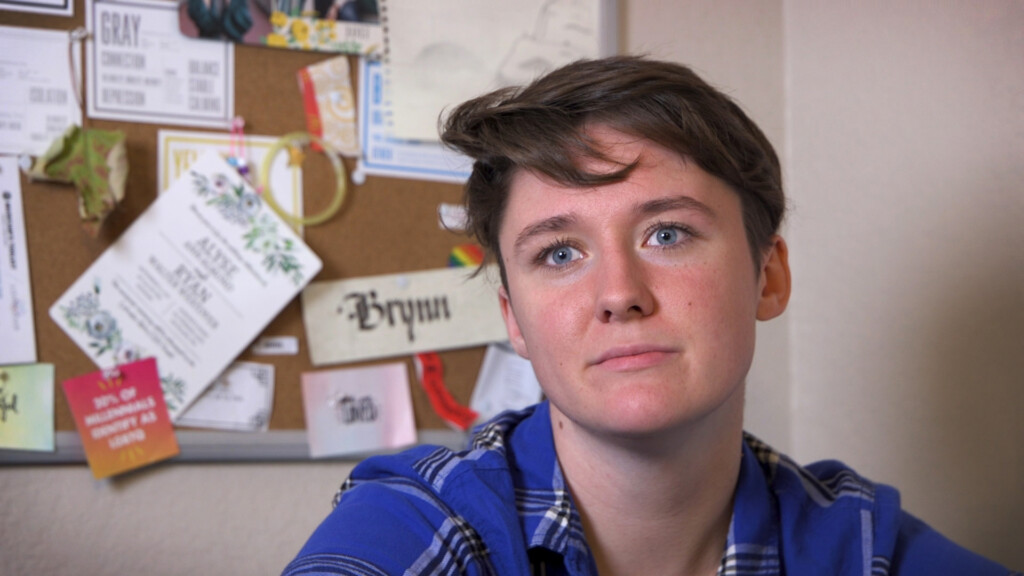
In an NBC News report, a 21-year-old student was so encouraged by the initial change on Feb. 19 that she decided to come out to her parents as bisexual. As students protested the sudden reversal, she said, “It was whiplash — total, complete traumatic whiplash.”
Receiving its world premiere at the Utah Film Center’s 17th annual Damn These Heels Queer Film Festival, Same-Sex Attracted, a documentary directed by Maddy Purves and Zoie Young, their first feature-length film, provides one of the most comprehensive views to date of the challenges LGBTQ+ students at BYU confront in navigating a strict honor code and the efforts of the student support group USGA (Understanding Sexuality, Gender and Allyship) to gain official recognition on the campus.
An absorbing film that steadily builds tension and impact through its 90 minutes, the project is an all-Utah enterprise, with producers Holly Tuckett, Tyler Measom and Aaron Allsop. Likewise, the production crew includes Torben Bernhard and Travis Low, who were responsible for the 2014 short film Transmormon, which has been seen by millions of viewers around the world. Same-Sex Attracted is available for screening today through July 19. Purves and Young will participate in two virtual Q&A sessions on July 16 at 8 p.m. and July 18 at 4 p.m.
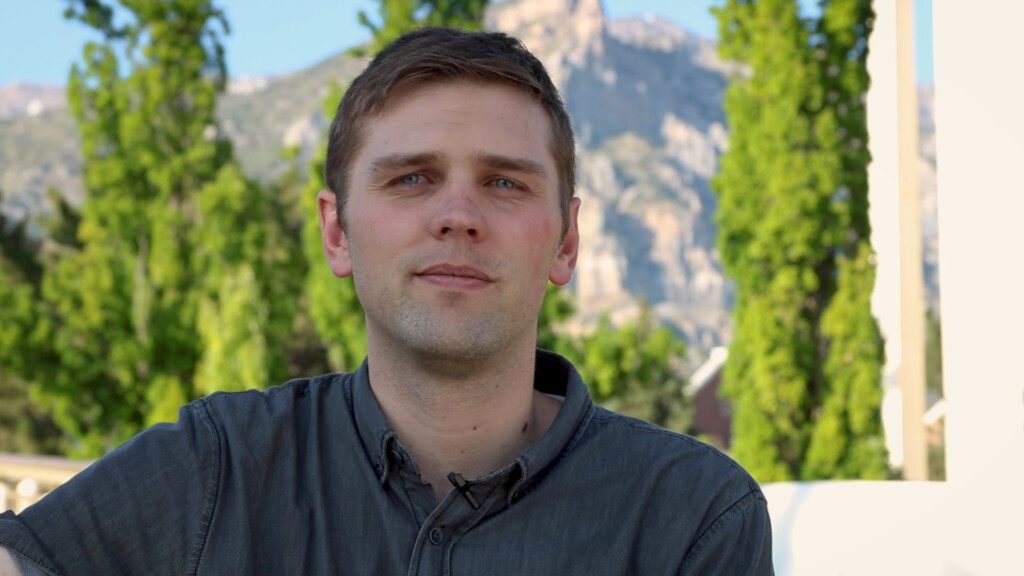
For many non-Mormons in the LGBTQ+ communities not just in Utah but elsewhere in the country, the pervasive question is that why students, who are so vulnerable to the honor code rules, would decide to remain on campus. As the film shows, the honor code’s impact extends well beyond the classroom, going directly to the student’s housing accommodations, their public behavior and appearance in the larger Provo community and the possibility that their fellow students will turn them in for behavior not considered appropriate in the rules.
Many young Mormons conceal or are scrupulously discreet about their true sexual identities but in the film, the students featured – including Sabina, Gabe, Brynn, JD and David – are outspoken and candid. Meanwhile, the circumstances with which they must contend are presented plainly. One cannot imagine how anyone could defend these barriers as anything else but as cruel, especially when the students sincerely hope to stay connected with their faith, and inexcusable, in light of the reaffirmation of their constitutional and legal rights on a broader scale. It is telling that despite the directors’ attempts to have a BYU administrator on camera to explain the school’s position, not one agreed to participate.
It is an ambitious project for first-time directors but the film delivers on informing viewers who will be compelled to push the conversation into game-changing territory. Some of the most striking scenes in the film show the magnitude of interest not just among the LGBTQ+ community on the Provo campus but also their fellow students and others who are part of the church. Rooms are packed, with attendees waiting in line to enter, for meetings and public discussions. The film captures the resilient energy that suggests despite the mightiest of efforts by church and university officials, the cause will not be silenced nor diluted. Same-Sex Attracted demonstrates effectively the spirit of students and alumni who recognize the long game challenges of bringing about changes that have been delayed far too long.
The Utah Review asked the directors to answer several questions about the film and their responses are presented below:
TUR: What was the process for setting this up as your first feature? And, how did you settle on this particular topic?
SSA: We are both queer and attended BYU. We felt, firsthand, the myriad of intense emotions of being LGBT in a highly monitored religious environment. We know what it is like to be queer at ‘the Lord’s University’ and once the idea of making a film about it popped into our minds, we knew we had to do something about it. We knew that the story of LGBT students at BYU was a story that had to be told, that it had to be told now, and that queer people had to be the ones to tell it.
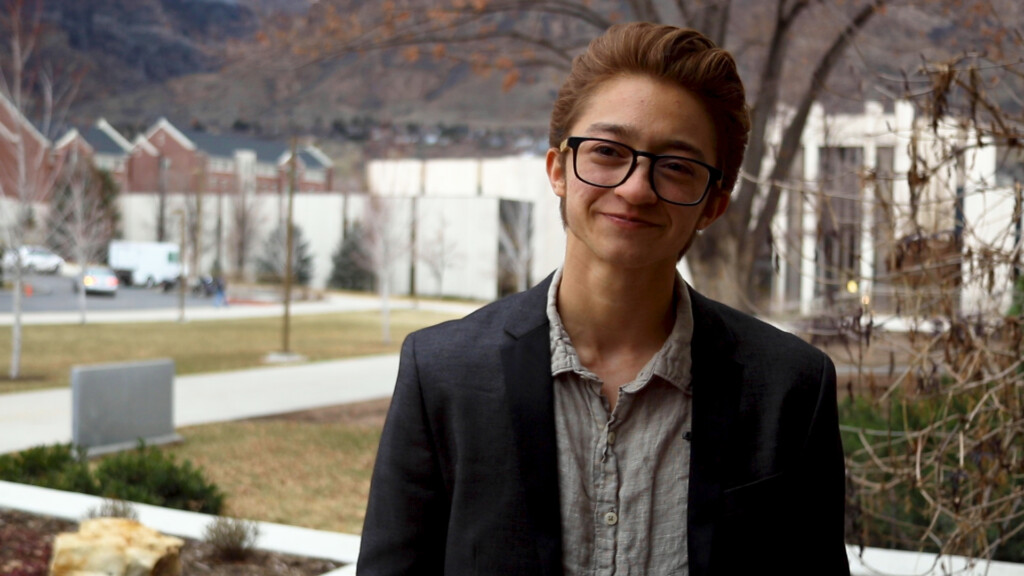
TUR: So much is at stake for the individuals featured in this film. How did you establish the trust and confidence with your subjects to participate in the film?
SSA: Because we are both queer, we were already a part of the LGBT community at BYU. We had already established a relationship–a friendship, first–with everybody we filmed. They trusted us because they knew that we were risking just as much by making the film as they were by being in it. We maintained a constant communication with them throughout all the years of production, and made it clear that we loved, respected, and were considerate of them and their safety. From the beginning in 2015, we told them that we would never include anything in the film that they were not comfortable with.
TUR: A common question and comment I have heard ever since I have lived in Utah is why do LGBTQ students even try to reconcile their place at a school such as BYU. Your film goes farther than anyone else has accomplished in elucidating the dilemma and dynamics underlying the question and challenge. In fact, it is stunning to see that in 2020 such an institution persistently fails to read the room or acknowledge the broader shift in society and the community, especially when campus sessions drew such large audiences. I am struck by how the school and administrators miss the core in the students’ quest to try to reconcile their identities with a genuine desire to serve and realize their faith. I am interested to hear your thoughts about this.
SSA: A question that a lot of people get when they are queer at BYU is “if you hate it so much, why don’t you leave?” The short answer to that question is that we belong here just as much as anybody else. We grew up Mormon, we believe (or believed) in Mormonism, we grew up paying our tithing and we both attended early-morning seminary as teens. We wanted the same things that every Mormon kid wants: to go to BYU, to be surrounded by other like-minded individuals, to find an eternal companion, and to graduate with a clear idea of how best to live a life in service of our Savior.
The long answer to the question is more complicated. Some students know they are gay before coming to college–like Sabina and JD, interestingly–but not everybody. Neither of us were out to ourselves before coming to BYU. Gabe didn’t realize he was trans until he had served an LDS mission. Once we realize we are gay, lesbian, trans, queer, we struggle with fear and loneliness until we (hopefully) find community. We found USGA, which we are both extremely grateful for, and which allowed us a space to find other like-minded individuals who were going through the same things we were.
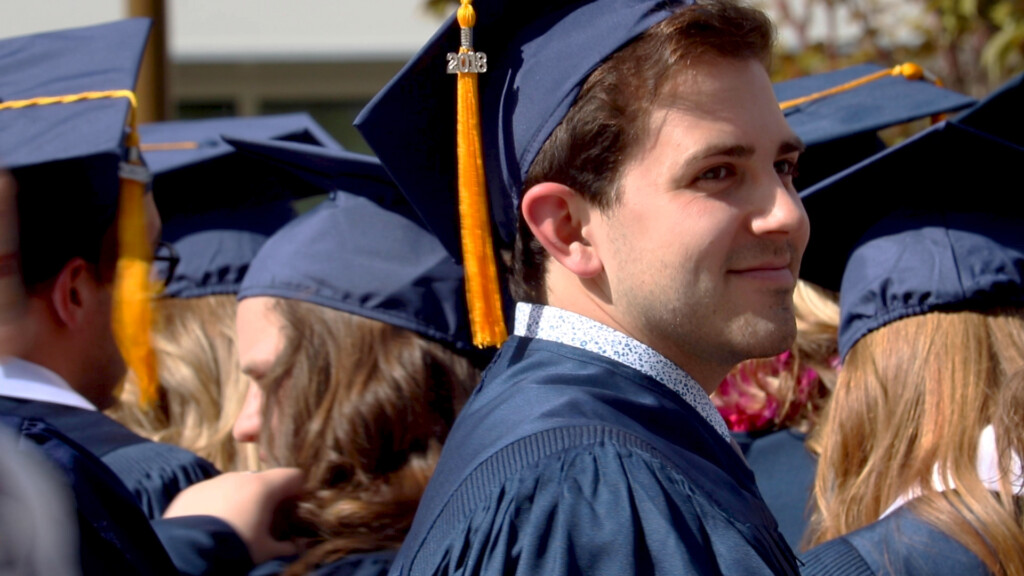
There is an interesting phenomenon at BYU that you can’t find anywhere else; both being Mormon and being gay are very integral parts of a person, and BYU is the only university where you can really find people who are experiencing both. For us, that meant we had a very tight-knit community, which allowed us a space to ask some of those questions. USGA helped us grow, develop a love for ourselves, and motivated us to believe that we could ask for better for ourselves and from our school.
There is definitely a misconnect between the culture and beliefs in Mormonism and the rest of the world when it comes to LGBT issues and identity. We no longer believe there has to be such a misconnect. We are hoping to bridge that gap.
TUR: It is conspicuous yet so critical in comprehending the impact of your film here to note how BYU administrators and staff refused to be interviewed on camera. Do you believe there are regrets among them that they did not take up the opportunity to interview? How do you believe their refusal to participate in interviews shaped, influenced or amplified the other content and voices in the film?
SSA: We know several faculty, staff, and administrators personally and have talked with them about this film and being in it for years. Ultimately, each of them cited the same main fear; they worried that if they went on camera–anonymously or otherwise–they would be fired. They sincerely believed their respective departments would search them out and punish them for participating. While we would have loved to share the voices from the administration and allow them the chance to speak for themselves, we had to let BYU’s actions speak for itself. As we received more and more “no”s, we understood early on that we would be unable to share their side of the story and decided to let current students be the main voices. We don’t know if they regret not speaking with us… but we hope they do. Furthermore, we hope they will speak up in the future. That is the only way things will change for the better for LGBT students at BYU.
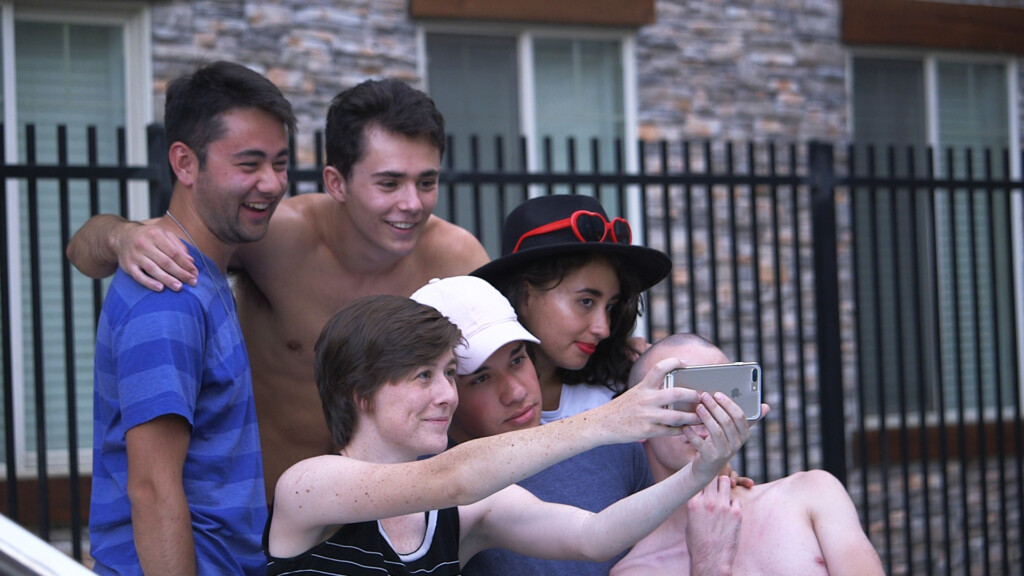
TUR: There is an encouraging resilience in the efforts of BYU students, suggesting that they are mindful that this requires long game strategies and commitment, even as they decide to leave school or stay until they graduate. Obviously, administrators hope that they can ride out the clock and hope that students will tire of the activism. However, the film ends on a different, encouraging note and activism seems to be intensifying. How do you see your film playing a role and contributing to the efforts of changing or eliminating the honor code and accepting LGBTQ students without conditions?
SSA: This is an ever-evolving fight. BYU (and Mormonism as a whole) has struggled with not only homophobia, but extreme racism and sexism as well since its inception. The kids coming into college now are more vocal and less tolerant than ever before of all of these social issues.
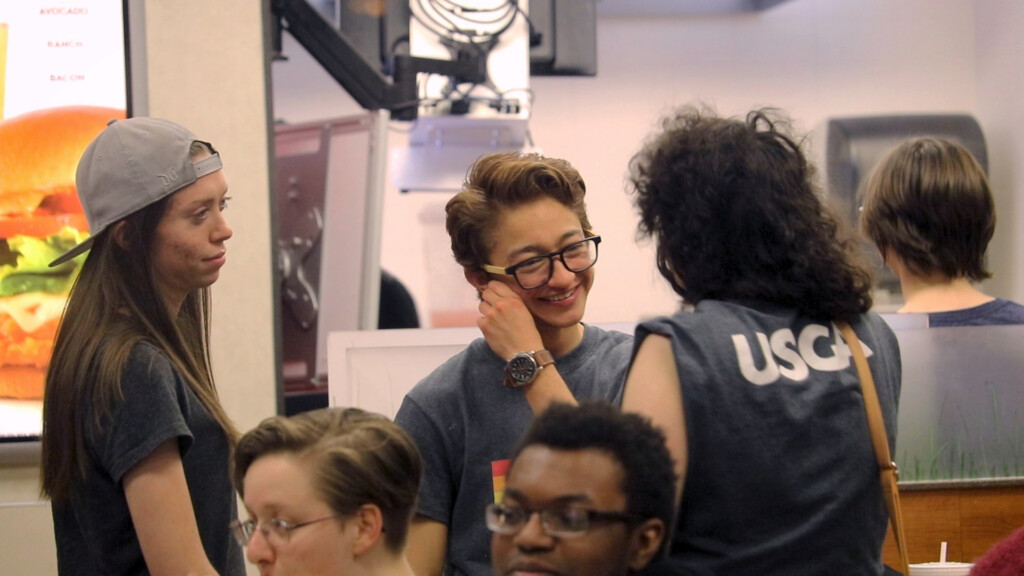
Our film shows the fire in the queer community. We wanted to highlight the camaraderie, the love, and the care we have for each other. We hope it shows the strength in our community and the vigor behind all the activism. We hope that our film proves that there is no reason why BYU cannot be fully accepting of their LGBT students any longer.
We hope that our film inspires the next generation of queer Mormons to keep fighting. We hope that our film can show that this isn’t a new fight, that it is a winning fight, and that it is a fight that will not end until queer students at BYU–and LGBT individuals in Mormonism as a whole–can live their lives in exact equity to their straight counterparts.

1 thought on “Utah Film Center Damn These Heels 2020: World premiere Same-Sex Attracted documentary highlights LGBTQ+ students at BYU, questions of faith, coping with honor code”